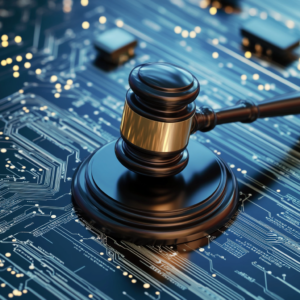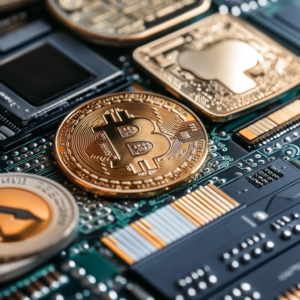1. Introduction
Welcome to “Crypto Wallets: How to Choose the Best One,” a comprehensive guide designed to help you navigate the complex landscape of digital asset storage. In this article, we focus on the key phrase “Crypto Wallets: How to” to provide you with actionable strategies and expert insights on selecting a wallet that meets your security, usability, and investment needs. As cryptocurrencies continue to grow in popularity, the importance of choosing the right wallet becomes paramount. With a plethora of options available—from hardware and software wallets to mobile and paper wallets—making an informed decision is critical for protecting your digital assets.

Supported by trusted sources such as Investopedia and Reuters Finance, as well as our internal guide Crypto Investing 101: A Beginner’s Guide, this guide is your roadmap to choosing the best crypto wallet for your needs.
2. Understanding Crypto Wallets
2.1. What Are Crypto Wallets?
Crypto wallets are digital tools that allow users to store, send, and receive cryptocurrencies securely. Unlike a traditional bank account, a crypto wallet does not hold money but rather stores the cryptographic keys—both public and private—that grant access to your digital assets on the blockchain. Essentially, the wallet acts as an interface between you and the blockchain network. Understanding how these keys work and the importance of securing your private key is fundamental. This knowledge is crucial for “Crypto Wallets: How to” choose the right wallet and ensure your assets remain secure.
2.2. Types of Crypto Wallets
There are several types of crypto wallets available, each with its own set of features and security levels:
- Hardware Wallets: Physical devices (e.g., Ledger, Trezor) that store your keys offline, providing robust security.
- Software Wallets: Applications installed on your computer or mobile device (e.g., Exodus, Electrum) that offer ease of use and quick access to funds.
- Mobile Wallets: Smartphone apps that allow for on-the-go transactions with convenient features like QR code scanning.
- Desktop Wallets: Software installed on your computer that offers a balance between security and accessibility.
- Paper Wallets: Physical printouts of your public and private keys, used for cold storage and long-term holding.
Understanding these options is essential when evaluating which type of wallet best fits your investment strategy and lifestyle. This comparison forms a key part of “Crypto Wallets: How to” choose the best wallet.
3. Key Factors in Choosing a Crypto Wallet
3.1. Security Features and Private Key Management
Security is the foremost factor when selecting a crypto wallet. Look for features such as two-factor authentication (2FA), multi-signature support, and robust encryption methods. The management of your private key is critical—if someone gains access to your private key, they can control your assets. Hardware wallets are generally considered the safest option, as they store keys offline, reducing the risk of hacks. For additional guidance on wallet security, refer to Reuters Finance. By prioritizing security, you ensure that “Crypto Wallets: How to” choose a wallet that protects your investments effectively.
3.2. User Experience and Accessibility
While security is paramount, the wallet’s user experience (UX) is also crucial. A well-designed wallet should offer an intuitive interface, easy navigation, and seamless functionality. Consider the ease of performing transactions, the clarity of wallet interfaces, and the availability of customer support. Mobile and desktop wallets are generally user-friendly, but it is important to test different options to see which one aligns best with your needs. Reviews and user testimonials on platforms such as Forbes Finance can provide additional insights into the usability of various wallets. Balancing security with usability is a core aspect of “Crypto Wallets: How to” select the best wallet for your day-to-day transactions.
3.3. Fees, Compatibility, and Backup Options
Another key factor is the fee structure associated with the wallet. Some wallets charge transaction fees, while others offer free transfers. Additionally, ensure that the wallet supports the cryptocurrencies you plan to store, as not all wallets are compatible with every digital asset. Backup options are equally important—features such as seed phrases and recovery tools are essential for restoring access in case of device loss or damage. For comprehensive comparisons, refer to internal guides such as Crypto Investing 101: A Beginner’s Guide and external resources like Investopedia. These factors collectively determine “Crypto Wallets: How to” choose a wallet that is not only secure and user-friendly but also cost-effective and reliable.
4. Evaluating Different Wallet Options
4.1. Hardware vs. Software Wallets
Hardware wallets, such as Ledger and Trezor, are known for their high level of security because they store private keys offline. They are ideal for long-term storage of large amounts of cryptocurrency. In contrast, software wallets offer convenience and ease of use, making them suitable for frequent transactions and smaller amounts of crypto. Desktop and mobile wallets fall under this category and provide a good balance between security and accessibility. This comparison is essential for “Crypto Wallets: How to” choose the wallet type that best fits your investment strategy and usage patterns.
4.2. Mobile and Desktop Wallets
Mobile wallets provide the convenience of managing your crypto assets on the go. They often include features like QR code scanning for quick transactions and biometric security options such as fingerprint authentication. Desktop wallets, on the other hand, typically offer a more secure environment than mobile apps, as they can leverage the enhanced security of your computer’s operating system. Evaluate the pros and cons of both based on your lifestyle and transaction frequency. Reviews on platforms like Forbes Finance and Reuters Finance can offer further insights into which option might be best for you. Choosing between mobile and desktop wallets is a significant step in “Crypto Wallets: How to” select the right tool for managing your digital assets effectively.
4.3. Paper Wallets and Cold Storage Solutions
Paper wallets provide a form of cold storage by allowing you to print out your public and private keys and store them offline. This method significantly reduces the risk of online hacking, making it a secure option for long-term storage. However, paper wallets come with their own risks, such as physical damage or loss. Many investors now prefer hardware wallets or other cold storage solutions that offer a balance of security and ease of use. These options are critical when considering “Crypto Wallets: How to” protect your assets over the long term.
5. Tools and Resources for Wallet Research
5.1. Reading Reviews and Community Feedback
Before choosing a crypto wallet, it is essential to research user reviews and feedback on community forums. Websites like Reddit’s r/cryptocurrency and Bitcointalk provide real-world experiences and opinions about different wallets. These forums can highlight common issues and strengths, offering insights that might not be available through official channels. Cross-referencing this feedback with expert reviews on Forbes Finance and Investopedia helps create a well-rounded perspective. This approach is a key part of “Crypto Wallets: How to” choose a reliable wallet that meets your specific needs.
5.2. Utilizing Blockchain Explorers for Verification
Blockchain explorers, such as Blockchain.com Explorer and Etherscan, are indispensable tools for verifying transaction data and wallet addresses. They allow you to view the history of transactions associated with a wallet, ensuring transparency and authenticity. By cross-checking data on these platforms, you can gain confidence in the security features of a wallet. Utilizing these tools is a practical way to ensure that your chosen wallet maintains the integrity required for secure asset management—a crucial consideration in “Crypto Wallets: How to” choose the best one.
5.3. Comparing Features on Reputable Platforms
In addition to user reviews and blockchain explorers, comparing wallet features on reputable financial platforms is essential. Websites such as Forbes Finance offer detailed comparisons and rankings of various crypto wallets. These resources can help you evaluate factors such as security protocols, fee structures, supported currencies, and ease of use. This comparative research is critical for “Crypto Wallets: How to” choose the wallet that aligns with your investment strategy and usage requirements.

If you’re interested in this market, I recommend a definitive course designed to equip you with the knowledge and skills you need to confidently dive into the world of cryptocurrencies and blockchain technology. As the digital landscape continues to evolve, this comprehensive course will serve as your compass, guiding you through the intricate paths of this exciting and transformative universe.
6. Best Practices for Secure Crypto Storage
6.1. Setting Up Your Wallet Securely
Once you have chosen a wallet, it is imperative to set it up securely. Follow the manufacturer’s guidelines for installation, ensure you create a strong, unique password, and enable two-factor authentication (2FA) whenever possible. Write down your recovery seed phrase and store it in a safe, offline location to prevent loss of access. These practices are essential for “Crypto Wallets: How to” choose and set up a wallet that protects your digital assets from unauthorized access.
6.2. Avoiding Phishing and Scam Attacks
Phishing attacks and scams are common threats in the crypto space. Be vigilant about verifying URLs, avoid clicking on suspicious links, and never share your private keys or recovery phrases with anyone. Use trusted sources and official wallet websites for downloads and updates. Regularly update your wallet software to protect against emerging vulnerabilities. Educational content on Forbes Finance and community alerts on Reddit’s r/cryptocurrency can help you stay informed about potential scams. This proactive security approach is critical in “Crypto Wallets: How to” maintain a secure storage environment.
6.3. Continuous Security Updates and Monitoring
Security is not a one-time setup; it requires continuous monitoring and updates. Keep your wallet software current and follow best practices for digital security. Regularly review your transaction history using blockchain explorers to detect any unauthorized activity.

7. Case Studies and Real-World Examples
7.1. Success Stories of Secure Wallet Usage
Numerous investors have successfully safeguarded their digital assets by choosing and properly setting up the right crypto wallets. For instance, a case study involving a long-term holder who utilized a hardware wallet demonstrated how robust security measures can protect significant investments during periods of market volatility. Detailed performance reviews and testimonials on platforms like Investopedia and Forbes Finance highlight the benefits of proper wallet selection and setup. These success stories underscore “Crypto Wallets: How to” choose a wallet that not only meets your security needs but also provides peace of mind.
7.2. Lessons Learned from Security Breaches
On the flip side, there have been several high-profile security breaches in the crypto world resulting from poor wallet security practices. By analyzing these cases, such as the compromise of certain exchange wallets or phishing scams, investors can learn valuable lessons about the importance of stringent security measures. Resources like Reuters Finance offer detailed case studies that highlight common vulnerabilities. These lessons are crucial for “Crypto Wallets: How to” choose and maintain a wallet that avoids such pitfalls.
8. Future Trends in Crypto Wallet Technology
8.1. Integration with Decentralized Finance (DeFi)
The rise of decentralized finance (DeFi) is reshaping the way investors interact with crypto wallets. Modern wallets are increasingly integrating with DeFi platforms to allow for seamless staking, lending, and yield farming directly from the wallet interface. This integration provides greater flexibility and can significantly enhance your investment returns. For more on DeFi trends, check out articles on Investopedia and Reuters Finance. Understanding these innovations is crucial for “Crypto Wallets: How to” choose a wallet that is future-proof and compatible with evolving financial ecosystems.
8.2. Advancements in Biometric and Multi-Factor Authentication
As cyber threats evolve, so do security measures. The latest wallets now incorporate advanced biometric authentication (such as fingerprint or facial recognition) and multi-factor authentication (MFA) to enhance security. These features not only improve user convenience but also significantly reduce the risk of unauthorized access. Reviews on platforms like Forbes Finance highlight the benefits of these cutting-edge security features. Adopting wallets with advanced authentication is an essential aspect of “Crypto Wallets: How to” choose a secure storage solution for your digital assets.
8.3. The Impact of AI on Wallet Management
Artificial Intelligence (AI) is beginning to play a role in enhancing wallet management. AI-driven analytics can help predict potential security threats, optimize transaction fees, and even provide personalized recommendations for wallet usage based on your trading patterns. This integration of AI technology represents the next frontier in crypto wallet innovation. For more details on AI’s impact in finance, refer to Investopedia’s AI Section and Bloomberg Terminal. These advancements further reinforce “Crypto Wallets: How to” choose the best wallet that combines cutting-edge technology with robust security features.
9. Frequently Asked Questions (FAQ)
Q1: What is a crypto wallet?
A: A crypto wallet is a digital tool that stores your public and private keys, allowing you to send, receive, and manage cryptocurrencies securely.
Q2: What are the main types of crypto wallets?
A: The primary types include hardware wallets, software wallets, mobile wallets, desktop wallets, and paper wallets, each offering different levels of security and convenience.
Q3: How do I ensure my crypto wallet is secure?
A: Use strong passwords, enable two-factor authentication, store your recovery seed safely, and regularly update your wallet software.
Q4: What should I look for when choosing a crypto wallet?
A: Key factors include security features, ease of use, fee structure, compatibility with various cryptocurrencies, and backup options.
Q5: Where can I find more information on crypto wallet security?
A: Trusted sources include Investopedia, Reuters Finance, and community forums such as Reddit’s r/cryptocurrency.
10. Conclusion
“Crypto Wallets: How to Choose the Best One” provides a detailed roadmap for selecting the ideal crypto wallet tailored to your needs. By understanding the various types of wallets and the critical factors to consider—such as security, user experience, fees, and compatibility—you can protect your digital assets and manage your investments with confidence. The strategies and tools outlined in this guide, anchored by the key phrase “Crypto Wallets: How to”, empower you to make informed decisions and secure your financial future in the rapidly evolving crypto space. For further insights, explore related articles such as Crypto Investing 101: A Beginner’s Guide. Empower yourself with knowledge, choose wisely, and protect your digital wealth.
